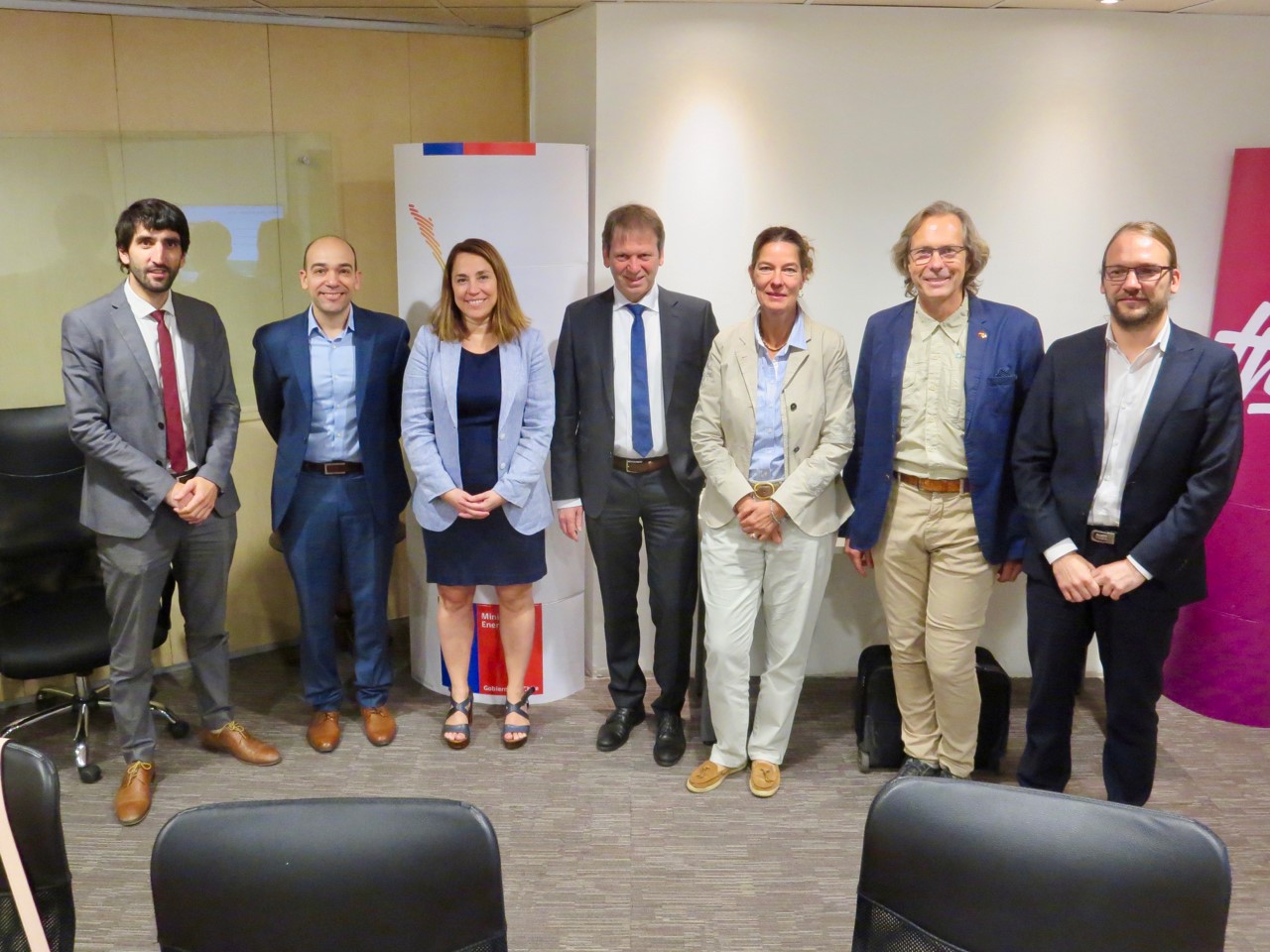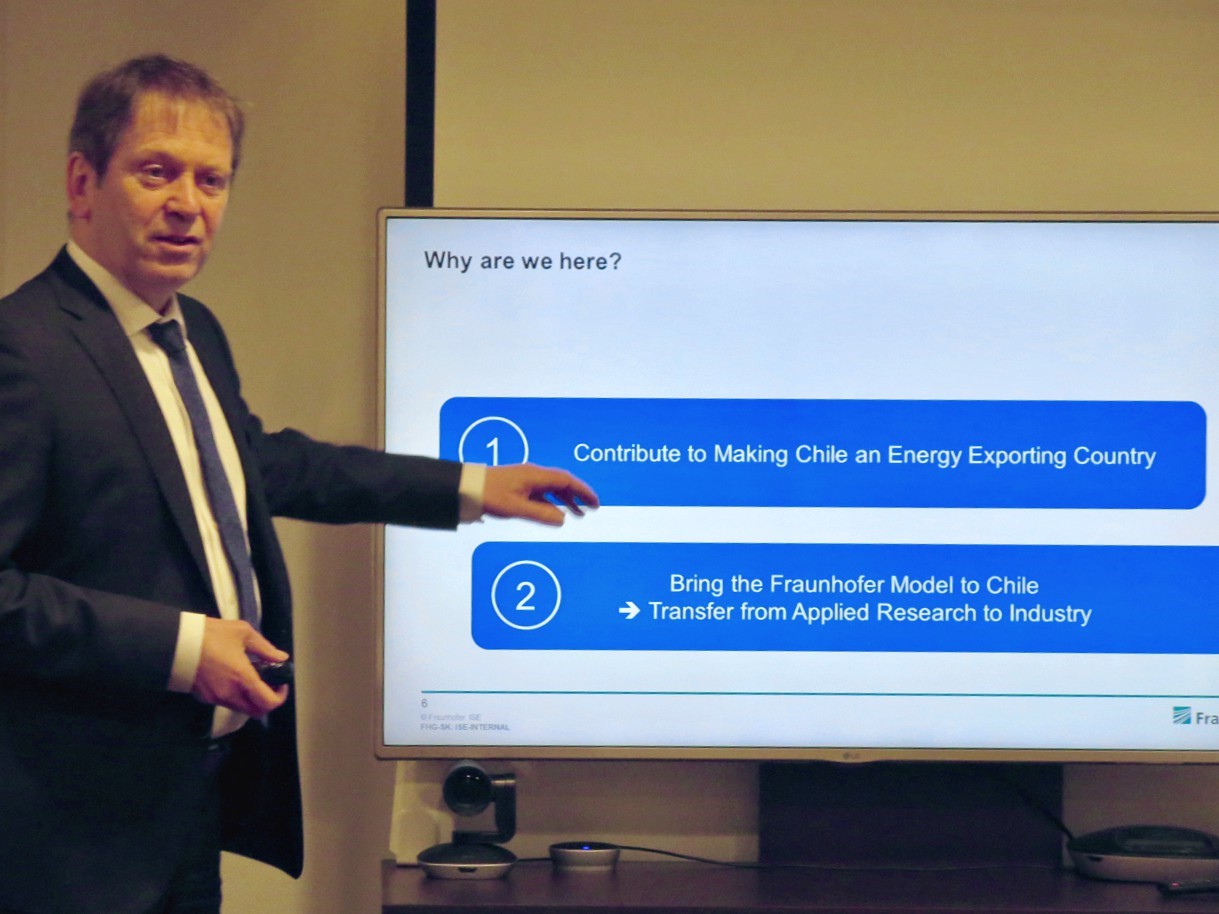Chile could become a country that exports solar energy
Professor Dr. Hans-Martin Henning, director of Fraunhofer ISE, highlighted the commitment of the institutes in Germany and Chile to promote research and development of solar energy in the country.



"Chile is an excellent place to develop a sustainable energy future and has the potential to become a renewable energy exporting country," noted Professor Dr. Hans-Martin Henning, director of the Fraunhofer Institute for Solar Energy Systems (ISE) during his visit to Chile this month.
Henning was in the country to reaffirm cooperation and identify research strategies for the future.
Among other activities, he met with representatives of the Ministry of Energy, representatives of the economy and companies such as SERC Chile, SQM, GlassPoint and the German-Chilean Chamber of Commerce and Industry (Camchal). In addition, he visited Cerro Dominador, the first thermosolar plant in Latin America, located in the Antofagasta region.
In his meeting with officials from the Ministry of Energy, Henning stressed that "Fraunhofer's commitment is to contribute to the successful development of a renewable energy system and a sustainable mining industry in Chile. In addition, Chile has the potential to become a solar energy exporting country.”
Discussions on future strategic research topics focused on solar thermal, photovoltaics and hydrogen battery technologies.
R&D cooperation
Chile's potential as a country, with the highest direct solar radiation in the world, is counterbalanced by the high demands that the local climate places on the resistance of materials and components.
Fraunhofer ISE has extensive knowledge in both areas. Its scientists have almost 40 years of experience working in solar thermal and concentrating solar applications. In addition, to obtain materials and components they test them in extreme climatic conditions.
"Therefore, we see the best conditions for our cooperation in promoting the necessary research and development activities in Chile," said Professor Frank Dinter, director of Fraunhofer Chile CSET and expert in the area of solar thermal research.
Transcontinental mining cooperation
Australia is also working in Chile to contribute to the development of a sustainable solar economy. As part of an invitation from the ambassador of Australia, Robert Fergusson, Chilean, German and Australian experts discussed possibilities for international cooperation, in particular for the development of clean technologies and to reduce CO2 emissions from energy consumption in mining.
Germany and Australia committed to join forces to contribute applied research to the development of clean energy in Chile and create an impact with added value.
Both institutes (CSIRO and CSET) talk to companies that can and want to do this. Initial commitments have already been received from some companies and other institutions that are going to support.
That is why they are applying together for the new Chilean Institute for Clean Technologies (CICT), a Corfo initiative that seeks to create a technological development and innovation entity, focused on solving industrial needs, focused on relevant technological areas, with dedicated human capital, agile, with high private participation and balanced governance, promoting local development.
During a meeting at CSET, Hans-Martin Henning stressed that complementing the capabilities of Fraunhofer Chile CSET and Fraunhofer ISE "is a tremendous opportunity to bring R&D to the Chilean market".
 Fraunhofer Chile Research
Fraunhofer Chile Research